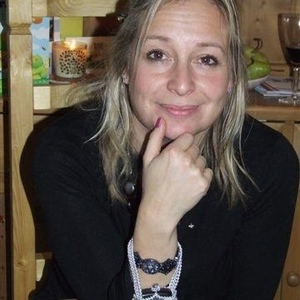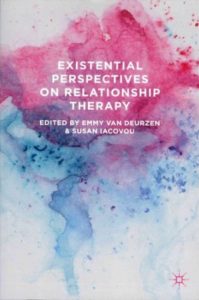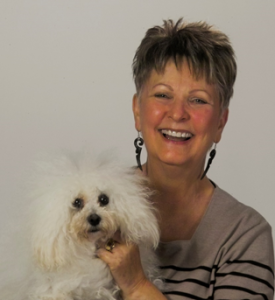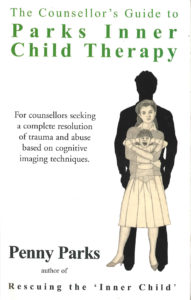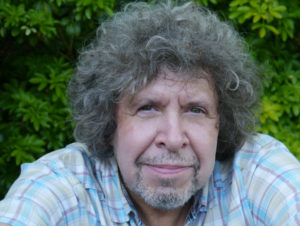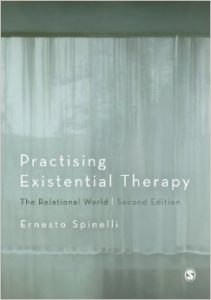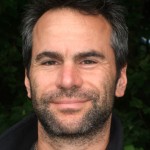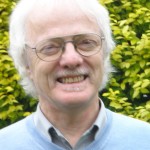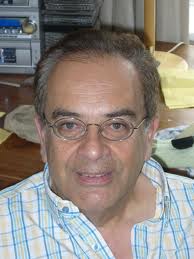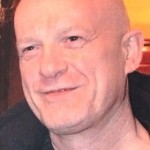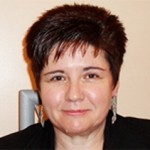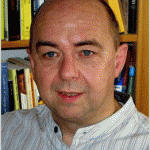On narcissism – setting the scene for Echo
Before moving on to narcissism a tiny bit of GPRS admin. You are on the circulation list for this blog because you subscribed through the subscription option on the website. You can unsubscribe at any time by using the unsubscribe option. You should also note that the circulation list for the blog is separate from our email circulation list. If you would like to subscribe to our emails then please follow the link here.
 On Friday 15th June 2018 Donna Savery will return to Mindsite to run a workshop structured around her newly published book Echoism, the silenced response to narcissism (Routledge, 2018).
On Friday 15th June 2018 Donna Savery will return to Mindsite to run a workshop structured around her newly published book Echoism, the silenced response to narcissism (Routledge, 2018).
Donna argues that although Echo and Narcissus had equal roles in Ovid’s version of the myth, Echo has been virtually ignored. This resonates cruelly with Echo’s character in the myth. And with the many people who are acting the story out in their daily lives. Echoism is new and fairly untrodden territory. However it is easy to gain the impression that narcissism is well understood and it seems to me that this is far from the truth.
First of all, what is narcissism? Popular sources offer:
- excessive interest in or admiration of oneself and one’s physical appearance.
- extreme selfishness, with a grandiose view of one’s own talents and a craving for admiration, as characterising a personality type.
- self-centredness arising from failure to distinguish the self from external objects, either in very young babies or as a feature of mental disorder.
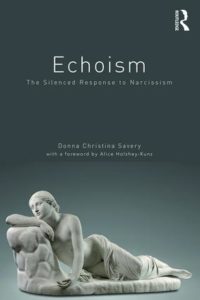 This seems complex, and the definitions avoid any reference to an other; to sexual attraction; or the phantasies that may be at work in the world of the unconscious. A more legitimate psychoanalytic source (Laplanche & Pontalis, 1973) offers the idea that narcissism is love directed towards the image of oneself.
This seems complex, and the definitions avoid any reference to an other; to sexual attraction; or the phantasies that may be at work in the world of the unconscious. A more legitimate psychoanalytic source (Laplanche & Pontalis, 1973) offers the idea that narcissism is love directed towards the image of oneself.
In the medical world there is Narcissistic personality disorder. DSM5 sees this as a continuum. At the neurotic (less severe) end are individuals who may be ‘socially appropriate , personally successful , charming and, although somewhat deficient in the capacity for intimacy, reasonably well adapted to their family circumstances, work and interests’ (DSM5: 38). At the other extreme are people who suffer from ‘identity diffusion, lack of consistent sense of inner-directed mortality and may behave in highly destructive ways’ (ibid). DSM5 defines two sub-types of narcissistic personality disorder: arrogant/entitled; and depressed/depleted.
Freud bears much of the responsibility for contemporary ideas on narcissism. These began to emerge in his 1905 work Three essays on sexuality. He used the idea in his interpretation of the Schreber case (1911) and in Totem and taboo (1913). Then he developed it further in On narcissism: An introduction (1914). Freud saw narcissism as a developmental stage between auto-eroticism and object-love. Personally, I find his writing on the subject refreshing and challenging; but lacking the certainty that is sometimes assumed.
Generations of psychoanalysts have developed these ideas, and the contribution of both Lacan and Kristeva are acknowledged. There are links to Michael Balint’s (1979) basic fault; and Heinz Kohut’s work on narcissistic injury. Yet for me there remains considerable ambiguity in the myth and the use that is made of it. This is probably its richness and the reason for its value in therapy, It fails to deliver a pre-processed version of truth and makes the reader or client work for the insight that is gained.
Echo may have been ignored by the psychoanalytic and psychiatric communities, but she is increasingly embraced by feminist writers such as Spivak (1996). The world of Hollywood seems to have taken the myth more completely to heart (Lawrence, 1991; Petek, 2008). And (with apologies to Jonathan for abusing a metaphor) sometimes Echo may be the elephant in the room.
We hope that people will come to the event on Friday 15th June to engage in this fascinating conversation.
Best wishes,
George MacDonald
References
Freud, S. (1905). Three essays on the theory of sexuality (J. Strachey, Trans.). In J. Strachey (Ed.), The standard edition of the complete psychological works of Sigmund Freud (Vol. 7, pp. 135-243). London: Vintage.
Freud, S. (1913). Totem and taboo (J. Strachey, Trans.). In J. Strachey (Ed.), The standard edition of the complete psychological works of Sigmund Freud (Vol. 18, pp. 1-162). London Vintage.
Freud, S. (1914). On narcissism: An introduction (J. Strachey, Trans.). In J. Strachey (Ed.), The standard edition of the complete works of Sigmund Freud (Vol. 14, pp. 73-102). London: Vintage.
Laplanche, J., & Pontalis, J.-B. (1973). The language of psychoanalysis. London: Hogarth Press.
Lawrence, A. (1991). Echo and Narcissus: Women’s voices in classical Hollywood cinema. Berkeley, CA: University of California Press.
Petek, P. (2008). Echo and Narcissus: Echolocating the spectator in the age of audience research. Newcastle: Cambridge Scholars Publishing.
Savery, D. C. (2018). Echoism: The silenced response to Narcissism. Abingdon: Routledge.
Spivak, G. C. (1993). Echo. In D. Landry & G. Maclean (Eds.), The Spivak reader (pp. 175-202). New Your, NY: Routledge.


